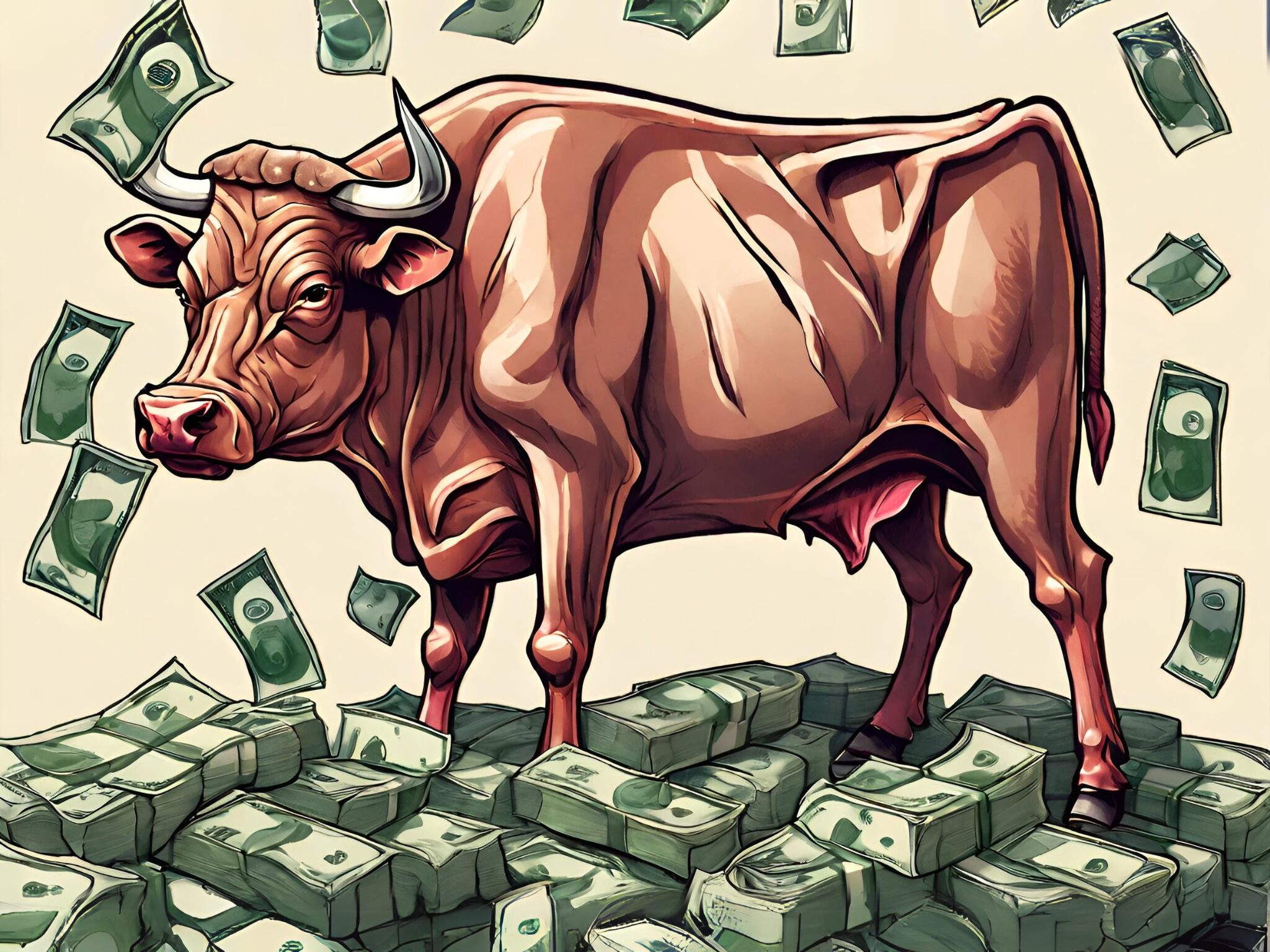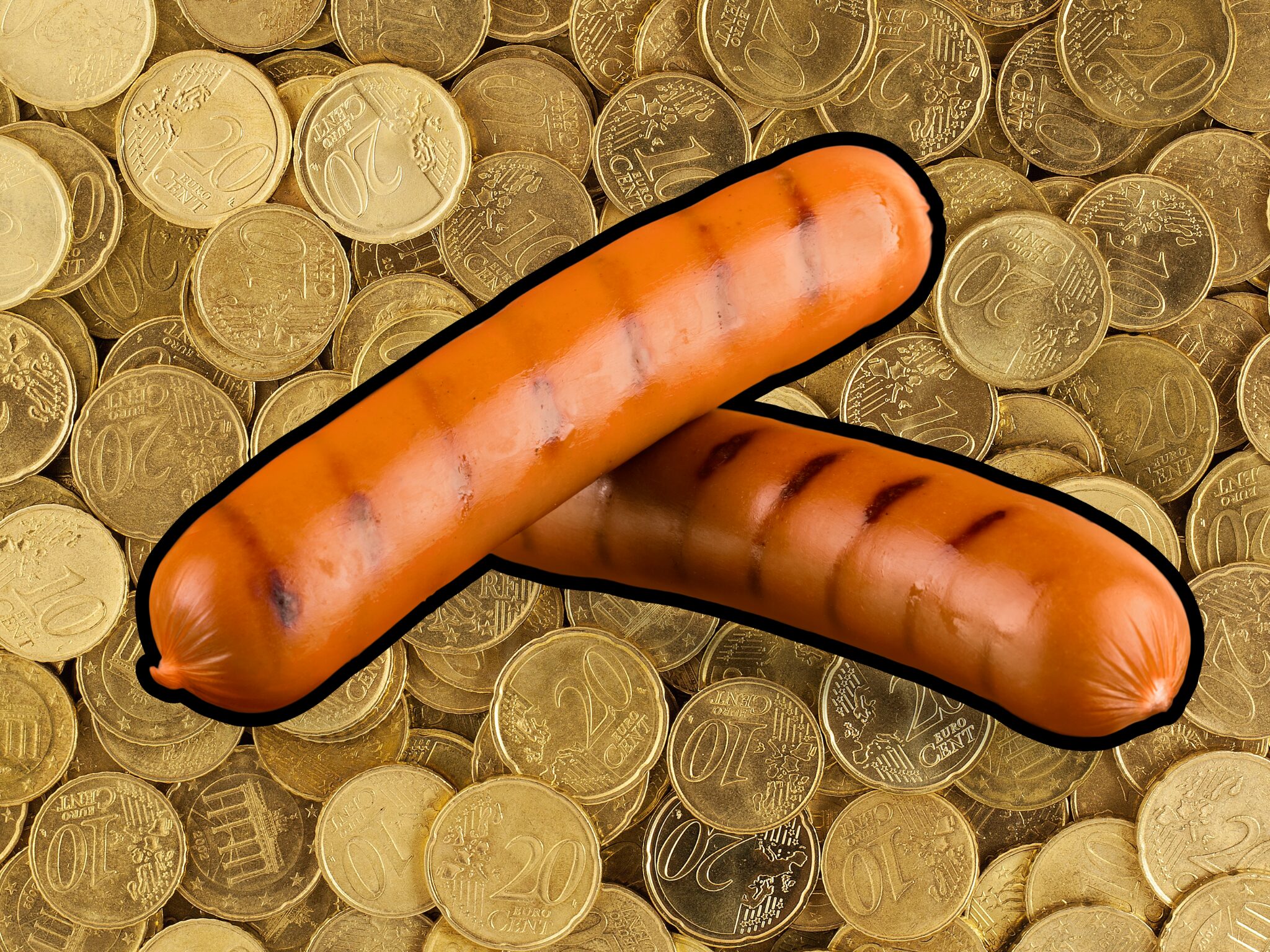Netherlands Rejected Meat Tax Based on ‘Biased’ Report, Finds New Investigation
6 Mins Read
The Dutch government’s decision against implementing a tax on meat products in 2021 was based on a one-sided, biased report, an investigation has found.
A government-commissioned report calling a meat tax in the Netherlands “unfeasible” was biased, one-sided, and carried out poorly, according to a new investigation.
The Ministry of Agriculture, Nature and Food Quality formulated the assignment to research firm Ernst & Young (EY) in such a way that the outcome was almost certain in advance.
It stemmed from a 2020 petition in support of a meat tax, which was signed by more than 50,000 Dutch citizens. They argued that a per kilo levy of €2 for chicken, €4.50 for pork and €5.70 for beef would help curb meat consumption, leading to a reduction in greenhouse gas emissions.
The excise duty would also generate €1.4B in funds annually, which could be used to make fruits and vegetables cheaper and farming practices more sustainable.
Dutch consumers wanted the Ministry of Agriculture, Nature and Food Quality to implement the tax as soon as possible, but a number of government officials felt it would lead to more complexity and regulatory stress for businesses, as well as more pressure on the Tax and Customs Administration.
However, increasing public pressure and parliamentary discourse convinced the ministry to commission EY for an independent review into a possible meat tax. EY’s conclusion – that a carbon tax on meat was too complex to implement – gave weight to the government’s apprehensions about the tax, which was successfully blocked.
Its assessment was met with criticism from experts and government officials. “What strikes me… is that the report generalises the conclusion that a system cannot be implemented overnight to ‘almost impossible to implement’,” one civil servant said. “In my opinion, the report too easily dismisses the consumption tax as too complex.”
These findings are the result of an investigation by media outlet Follow the Money (FTM), which obtained information via the Open Government Act in the Netherlands (similar to how Freedom of Information works).
EY made ‘unsubstantiated’ claims on implausibility of meat tax

When the agriculture ministry invited EY to submit a quote, it emphasised that the focus of the study should be on the complexity of a meat tax. In fact, it stated that the spotlight should explicitly not be on the economic consequences, behavioural effects, consumption patterns, or potential environmental and health impacts.
“The government policy on this point has been for years that a tax is undesirable, with the main argument being the increase in complexity,” the ministry said, adding that there are arguments why a meat tax could have added environmental and health value.
In the resulting report, titled ‘The (im)possibilities of a consumption tax on meat’, EY concluded that a meat tax was “hardly feasible”, at least in the very short term.
FTM’s investigation found that the report was conducted poorly, with EY making several unsubstantiated recommendations that were then labelled as unfeasible. For example, the consultancy said it didn’t make sense to tax imported meat in Dutch supermarkets, suggesting that it would be better to charge the levy in the country of origin, without explaining why. It also emphasised that only taxing local meat would lead to a worse environment for domestic farmers.
Additionally, it assumed that the tax wouldn’t apply to ‘composite meat products’ like salami pizzas or sausage rolls, warning that such processed food will become cheaper and thus more attractive to consumers. As a result, the meat tax would contribute to unhealthier choices on the part of the supermarket shopper, EY said.
These statements mirrored the concerns of some government officials. One internal email read: “Just to illustrate the complexity: Meat is often processed into composite products, such as microwave meals, meat salads, sausage rolls or meat croquettes. A VAT on meat will then lead to a large number of demarcation and control problems at every delivery point, wherever in the chain.”
The report further suggested that it wasn’t possible to legally oblige retailers to pass on the tax to consumers, but as FTM notes, just because something can’t be mandated doesn’t mean it can’t happen.
The meat levy is “in all probability, not the best means to achieve the objectives”, EY concluded. Its main counterargument was that there was no suitable executor of the tax, based on interviews with three government bodies that had already considered themselves unsuitable to implement the levy from the outset.
“I find EY’s choice [to base its conclusions solely on interviews with government agencies] striking,” Fredo Schotanus, professor of public procurement at Utrecht University, told FTM. “Of course you have to talk to governments, but the question is whether these governments are neutral in the discussion. If you also interview independent scientists and experts, you will hopefully get a more objective, broader and possibly also more nuanced picture.’
Efforts to conduct new research blocked by parliament

Schotanus is among a number of experts who have criticised the EY report. “Because the other aspects of a meat tax, such as environmental benefits, savings in environmental policy elsewhere, and health benefits are not being investigated, it was in danger of becoming a biased story anyway,” said Geert Bergsma, a researcher at CE Delft, whose research formed the basis of the original petition.
Rob van Eijbergen, professor of integrity at Vrije Universiteit Amsterdam, called EY’s approach problematic. He labelled it as “directive, closed and poorly formulated”, and accused the consultancy of using “targeted reasoning”.
In March 2022 – more than a year after EY published its report – then agriculture minister Henk Staghouwer sent a letter to the parliament calling for new research on the feasibility of a meat tax.
Around the same time, scientists at Wageningen University conducted a state-commissioned study into a meat tax where the proceeds would be used for sustainability purposes. This format – not mentioned by EY – was found to potentially have a positive impact on nature, farmers’ incomes, animal welfare, and consumer health.
Even the country’s largest farmers’ association, the LTO, expressed support for such a tax, “as long as we are in control”, it told the researchers. However, its tone was very different when responding to Staghouwer’s proposal for a new study, as was the case with several politicians and media outlets (some of which pushed back with deceptive headlines).
In 2022, the far-right Party for Freedom – now the largest party in the Dutch House of Representatives – submitted a motion against introducing a meat tax, which received a broad parliamentary majority.
The Dutch agriculture ministry said that after the motion was adopted two years ago, there was “no basis” for additional research. When asked whether agriculture minister Femke Wiersma is considering a meat tax as a way to make agriculture and farmer incomes more sustainable – as Denmark has done – it said the meat tax is not part of the main coalition agreement under prime minister Dick Schoof.
That said, the ministry suggested that it still supports the choice of giving this “first exploratory study” a limited approach. “Of course, such a consideration, if it were ever made, must result from a consideration of all aspects, such as behaviour, environment and health,” it told FTM.
In a statement, EY said: “It is not up to us to respond to assignments that we carry out for clients.”



